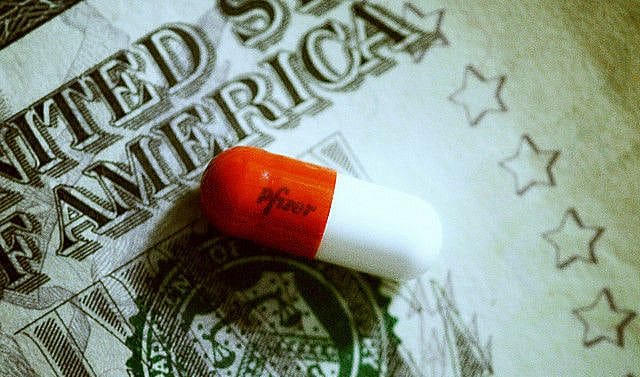La ricompensa sarebbe condivisa con un altro accusatore di attività illegali, Lauren Kieff, una ex informatrice scientifica di AstraZeneca, un rivale di Pfizer. L’ultimo compenso rafforzerà il suo status di uno dei più prolifici informatori seriali di attività illecite d’America e alimenta il dibattito su un sistema che dà diritto alle persone di ricevere fino al 30 per cento delle multe federali derivanti da casi che essi hanno contribuito a istigare.
Andrew Ward, Pharmaceuticals Correspondent - ft.com - Financial Times
William LaCorte was one of two whistleblowers whose lawsuits led Pfizer on Tuesday to agree to pay the US Department of Justice $ $784.6 million to settle charges leveled at its subsidiary Wyeth for overcharging the Medicaid administration for a heartburn drug.
The 67-year-old New Orleans practicing physician stands to receive approximately $ 59 million from the firm due to US lawsuits designed to facilitate lawsuits (in addition to the $ 38 million he has received from similar lawsuits in the past).
L’ultimo compenso rafforzerà il suo status di uno dei più prolifici serial informants of America's illegal activities and fuels debate about a system that would entitle people to receive up to 30 percent of federal fines from cases they helped instigate.
Dr LaCorte sued Wyeth in 2008 under the US False Claims Act, which allows people to bring lawsuits on behalf of the government against companies or individuals who defraud taxpayers.
Wyeth was accused of illegally denying Medicaid, the publicly funded health insurance program for low-income patients, hundreds of millions of dollars in discounts that were available to non-government customers for its heartburn drug , Protonix.
Dr LaCorte previously won a £$ 250m lawsuit with the US firm Merck & Co in 2008 involved with similar allegations related to a heartburn drug called Pepcid.
“I numeri sembrano grandi, ma una volta che hai pagato gli avvocati ed il fisco quello che rimane non è molto” ha detto il dottor LaCorte, aggiungendo che la sua motivazione principale è stata quella di denunciare il malcostume piuttosto che fare soldi.
“Ho rispetto per le aziende farmaceutiche che fanno le cose nel modo giusto, ma non per coloro che hanno farmaci di quart’ordine che non sono stati adeguatamente testati e che pagano i medici per prescriverli.”
The Protonix case was one of a dozen lawsuits Dr. LaCorte has filed against pharmaceutical companies over more than two decades. He says he no longer has any pending or planned lawsuits, but hopes others will follow suit.
Geoffrey Rapp, professore di diritto presso l’Università di Toledo in Ohio, dice che il sistema ha fatto più bene che male. “Gli accusatori seriali sono una cosa rara”, ha detto. “Nella maggior parte dei casi si tratta di accusatori di una sola volta che lavorano all’interno di un settore e che è improbabile che abbiano di nuovo la possibilità di denunciare attività illegali”.
In 2015, 638 lawsuits were filed by whistleblowers of illegal activity under the False Claims Act, and the Justice Department recovered $ 2.8 billion, while the accusers received $ 597m.
Pfizer said che era contenta di avere “raggiunto un accordo di principio” per risolvere la controversia Protonix, senza ammettere responsabilità, “per mettere questi casi alle spalle e concentrarsi sulle esigenze dei pazienti”. I presunti abusi si sono verificati tra il 2001 e il 2006, prima che Wyeth fosse acquisita da Pfizer nel 2009. Il caso era stato programmato di andare a processo il mese prossimo in un tribunale federale di Boston.
